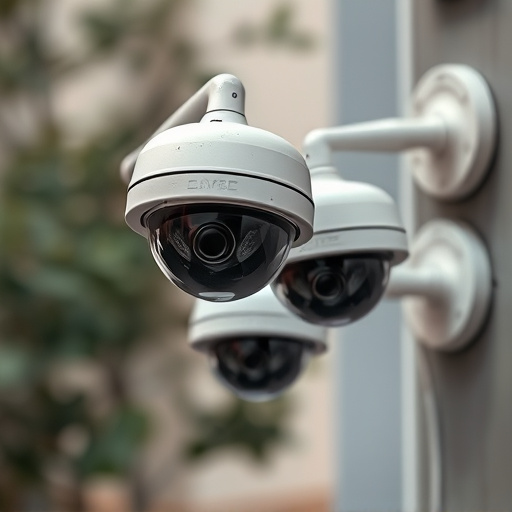Fake security cameras create a powerful psychological deterrent by resembling real surveillance equipment, but lack critical electronic components needed for recording or live monitoring. Their simplicity makes them immune to hacking and technical failures while providing a visible security presence, effectively discouraging criminal activity without requiring elaborate setup. Although lacking advanced features, these decoy cameras offer an affordable solution for basic security needs where altering intruder behavior is the primary goal. In terms of "do fake security cameras work," their effectiveness lies in creating a false sense of active surveillance.
Do fake security cameras work? It’s a question that puzzles many homeowners. This article explores the concept of security camera housing without electronics, also known as decoys or fakes. We’ll delve into how these seemingly passive devices mimic real surveillance systems and the benefits they offer in enhancing home security. From their operational mechanics to practical considerations, understand why these fake cameras can be a game-changer in deterring potential intruders.
Understanding the Concept of Fake Security Cameras
Fake security cameras, also known as decoy or dummy cameras, are designed to look like real surveillance equipment but lack the electronic components necessary for actual video recording or monitoring. The concept is simple yet ingenious: by strategically placing these realistic-looking replicas, individuals or businesses can deter potential thieves or vandals from targeting their property. The effectiveness of fake security cameras lies in their ability to create a false sense of security, making it less likely for criminals to carry out malicious activities.
Despite their seemingly passive nature, do fake security cameras work? Absolutely. While they don’t record footage or transmit signals, their visual presence can be a powerful deterrent. Criminals, upon seeing these camera mockups, may assume that real surveillance is in place, leading them to reconsider their actions. This psychological effect, combined with the physical obstacle of having to disable or remove the fake cameras, can significantly enhance overall security without requiring extensive electronic infrastructure.
How These Devices Operate Without Electronics
Fake security cameras, or those designed without internal electronics, operate on a simple yet effective principle. These devices are typically constructed with a housing that resembles a real camera, complete with lens and casing. Inside this housing, there is often a mechanical or optical sensor that captures light and converts it into an image or video signal. This signal can then be transmitted to a monitoring system either through physical connections like cables or wirelessly, depending on the model.
Unlike traditional security cameras that rely heavily on electronic components for processing and storage, these fake cameras often have minimal internal parts. They mimic the appearance of real cameras to deter potential thieves or intruders, while their lack of electronics makes them less susceptible to technical glitches or hacking attempts. This innovative design offers an alternative solution for those seeking a cost-effective and discreet security measure without compromising on visual deterrent value.
Benefits and Considerations for Their Use
Fake security cameras, or dummy cameras, offer a unique and often overlooked solution for enhancing home and business security without the need for complex electronics. One of their key advantages is the element of surprise they bring to potential intruders. These static devices mimic real cameras, acting as a powerful deterrent without the associated costs and technical requirements of traditional security systems.
When considering fake security cameras, it’s essential to balance their benefits with certain drawbacks. While they are cost-effective and easy to install, they may not provide the same level of surveillance as real cameras, especially in terms of video quality and motion detection capabilities. However, for basic security measures, particularly in areas where full-time monitoring isn’t required, these dummy cameras can be highly effective. Their presence alone can significantly alter intruder behavior, making them a valuable addition to any security strategy, including those focusing on the placement of do fake security cameras work?
